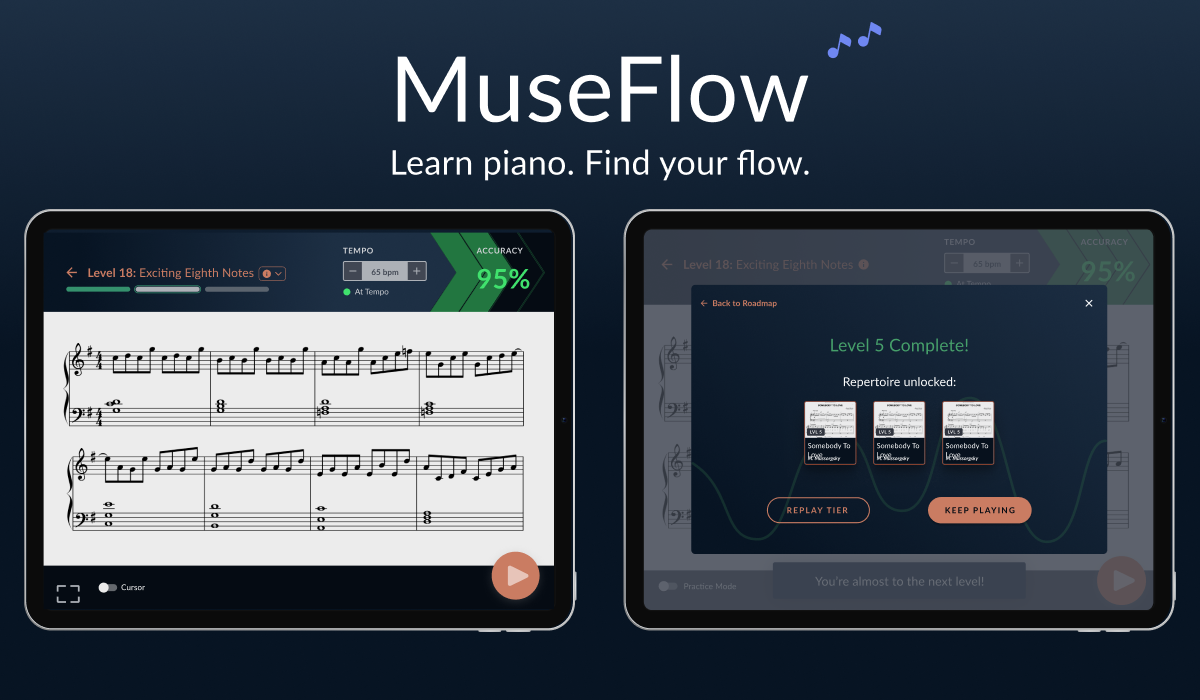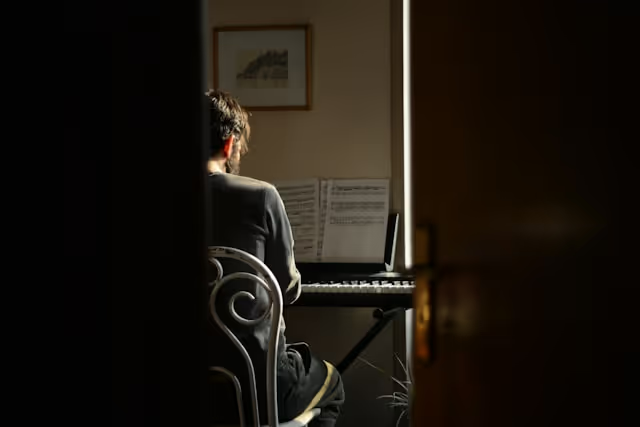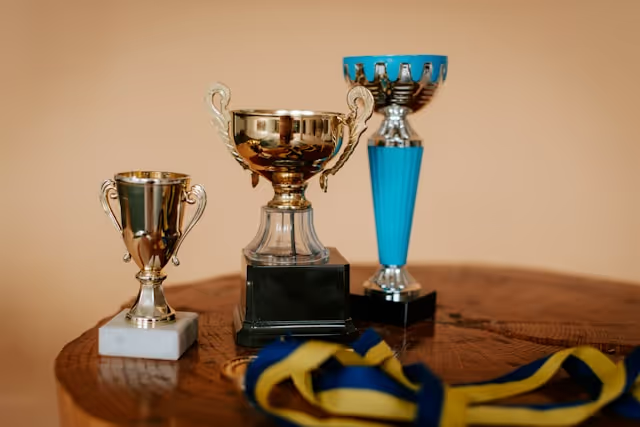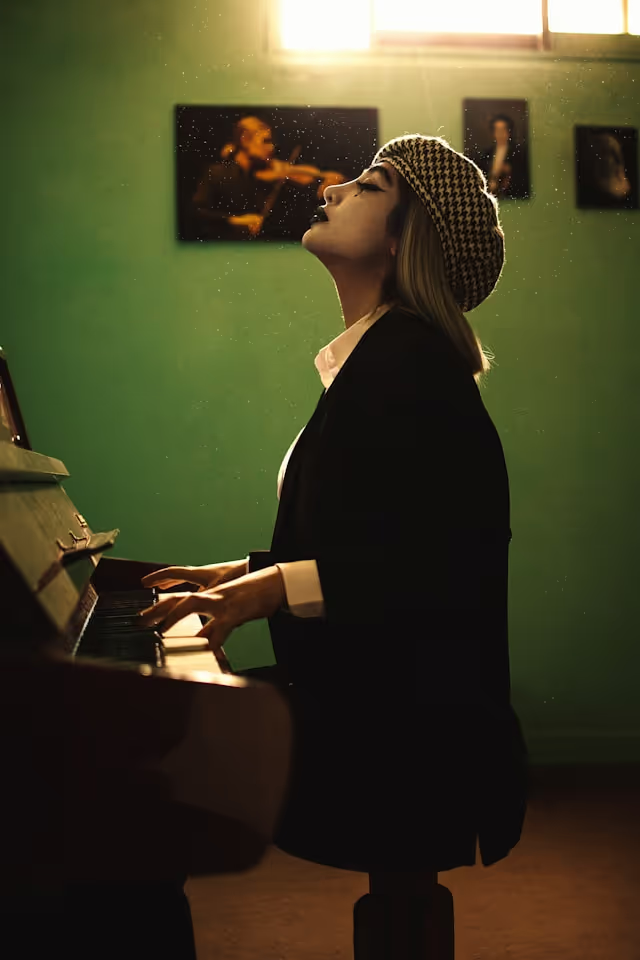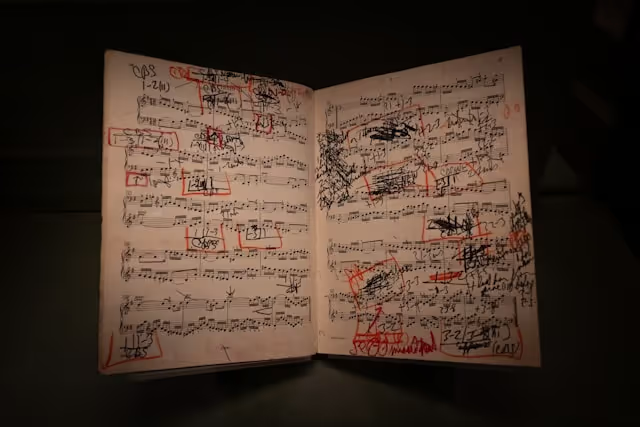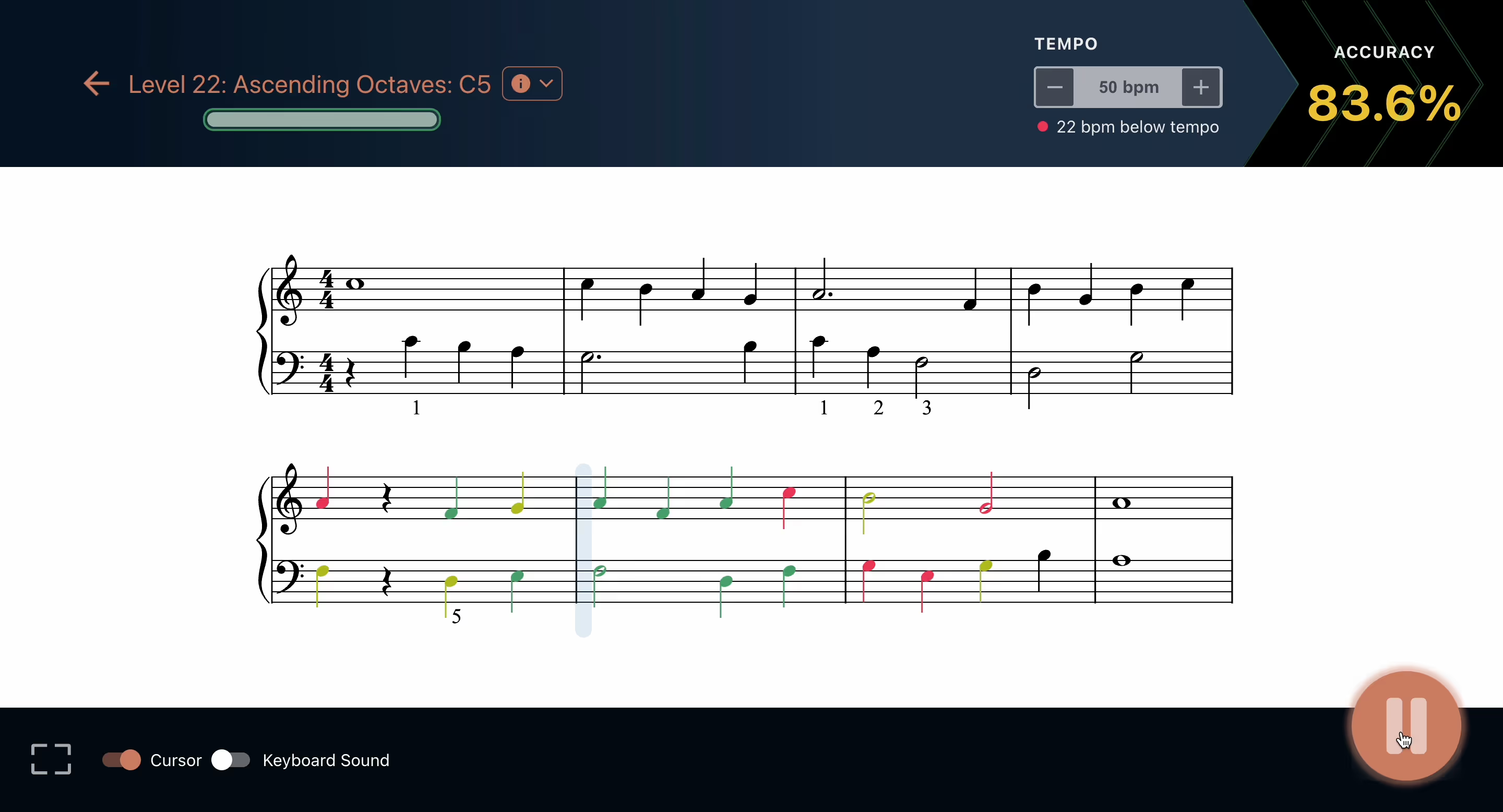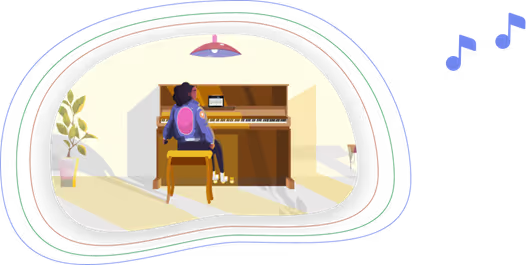What is the Future of Piano Education?AI and Gamification
For centuries, piano education has remained largely unchanged. But what if the future of piano education looks less like a formal lesson and more like an immersive video game?
MuseFlow is reimagining how people learn piano, blending AI, data science, and gamification into an experience that feels more like an immersive game than a traditional lesson!
Piano education is being forged by the powerful combination of artificial intelligence (AI), data science, and gamification.
This race to excellence isn't just occurring in music education. We are all encountering a world where learning is personalized, engaging, and more effective than ever before. Even our consumer apps recognize our preferences and recommend songs or films. Social media platforms, content producers, and advertisers know how to tap into our interests and behaviors to keep us engaged.
It is no different with learning, but with an even brighter opportunity. Traditional piano lessons have long been plagued by a high dropout rate due to slow progress and a one-size-fits-all approach. MuseFlow is driving forward the future of piano education. It completely revolutionizes learning.
NOTE: If you mistakenly conclude that piano teachers and other music instructors are irrelevant, think again. This article discusses the important and elevated role piano teachers play in music education.

The AI Revolution: A Personal Tutor for Every Student
The most significant shift in learning, including piano education, is the rise of AI. As a recent report from the U.S. Department of Education notes, AI can "make learning more personalized, engaging, and effective." Here’s how advanced technologies like data science, AI, and understandings in neuroscience are shaping the future of piano education:
- Adaptive Learning Paths: Analyze playing in real-time to create a personalized learning path that adapts to skill level.
- Instant, Granular Feedback: Deliver instant, note-by-note feedback, allowing the correction of mistakes immediately. This is critical to develop good habits from the start.
- Practice Tools: Creating exercises and learning environments that make learning more efficient and enjoyable. As noted by Stanford University in the future is already here: AI and education in 2025, AI is already capable of a wide range of tasks that can support learning.
This level of personalization through data science and AI is a game-changer to the future of piano education, and it's a key part of which piano learning app helps you stay consistent.

Gamification: Making Practice Feel Like Play
If artificial intelligence is the brains of the piano education future, then gamification is the heart. Gamification taps into our ability to learn through carefully designed challenges. By applying game-like elements to non-game contexts, researchers know engagement and motivation is increased.
If you’ve ever sought to learn a foreign language using Duolingo, improved your math skills using an app, or mastered other concepts using software and apps, gamification is familiar territory. You know the good feeling you get when you unlock one more achievement, pass another level, or earn a particular reward. All the while, you are learning.
Here’s how gamification is shaping the future of piano education:
- Intrinsic Motivation: Games tap into our intrinsic motivation by providing a sense of accomplishment and mastery. Gamified piano lessons do the same, fostering a love of learning.
- The Power of Flow: Gamification is all about creating a state of "Flow," where you are so absorbed in an activity that you lose track of time. This is the optimal state for learning.
- A Proven Approach: The idea that gamified piano learning works better than traditional lessons is a proven approach that is delivering real results.
Future effective methods of education will be shaped by our ability to harness technology to create more engaging and effective learning experiences. Gamification is a crucial component of this transformation. But make no mistake: gamification for the future of piano education isn't child's play. Creating software solutions that truly optimize learning requires the combined expertise of behavioral psychologists, software engineers, product design teams, and educational researchers. It's a sophisticated science that transforms how we absorb and retain knowledge.
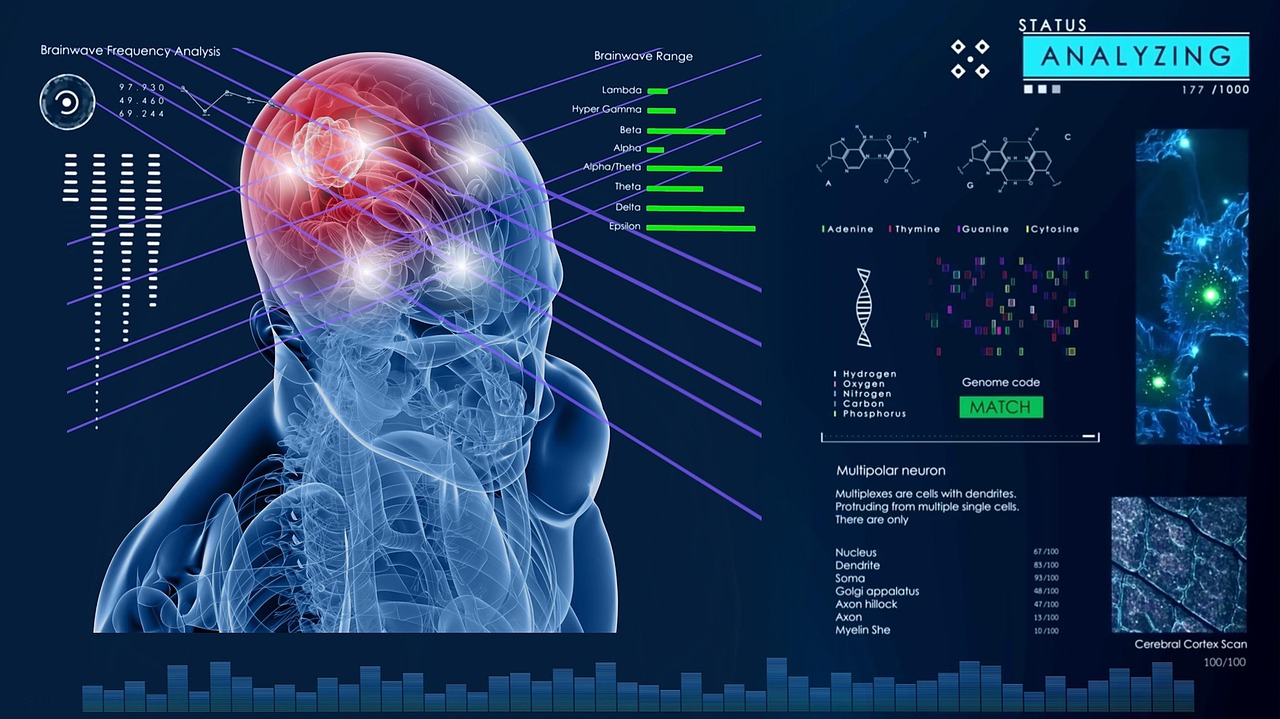
MuseFlow: The Future of Piano Education is Now
The type of piano education that awaits any musician’s future is a seamless blend of AI-powered personalization, data science, complex algorithms, and game-like engagement.
MuseFlow is at the forefront of our collective piano education future, combining a sophisticated engine with a engaging and effective gamified experience. The result is a learning system that is not only more efficient than traditional lessons but also infinitely more enjoyable.
The future of piano education is not about replacing human teachers, but about augmenting their abilities. With AI and gamification, the piano education future is brighter than ever.
The Futuristic Technology Behind the Transformation
The future of piano education is built on sophisticated technology that makes learning more intuitive. The computing power of modern systems analyzes thousands of data points from your playing, creating a comprehensive, ever-adapting, portrait of your musical abilities.
Machine Learning in Action: These systems learn from every note, becoming more accurate over time. They can predict which concepts you'll struggle with and proactively provide support.
More than that, the technology taps into all the insights we have about neuroscience, pedagogy, and behavioral psychology. Leading music educators are harnessing technology to work with our most effective and efficient ways of learning.
Expanding Horizons for Musical Education
One of the most exciting aspects of the piano education future is its potential to democratize music education. Traditional piano lessons have long been gatekeepers to musical learning: expensive, requiring specific scheduling, and often limited by geography. With remote lessons, AI-powered tools, and gamified piano education using technology, educators shatter these barriers.
The Perfect Future Partnership: AI and Human Teachers
Here's what many people get wrong about the future of piano education: AI is not about replacing human teachers; it's about unleashing teachers’ true potential and passion.
Think of it this way: when a solution like MuseFlow handles technical fundamentals (for example, timing, note accuracy, finger positioning) teachers are liberated to focus on what makes music truly magical. They can dive deep into the emotional nuances of a Chopin nocturne, explore the dynamics of a particular ballad, or help students find their unique musical voice.
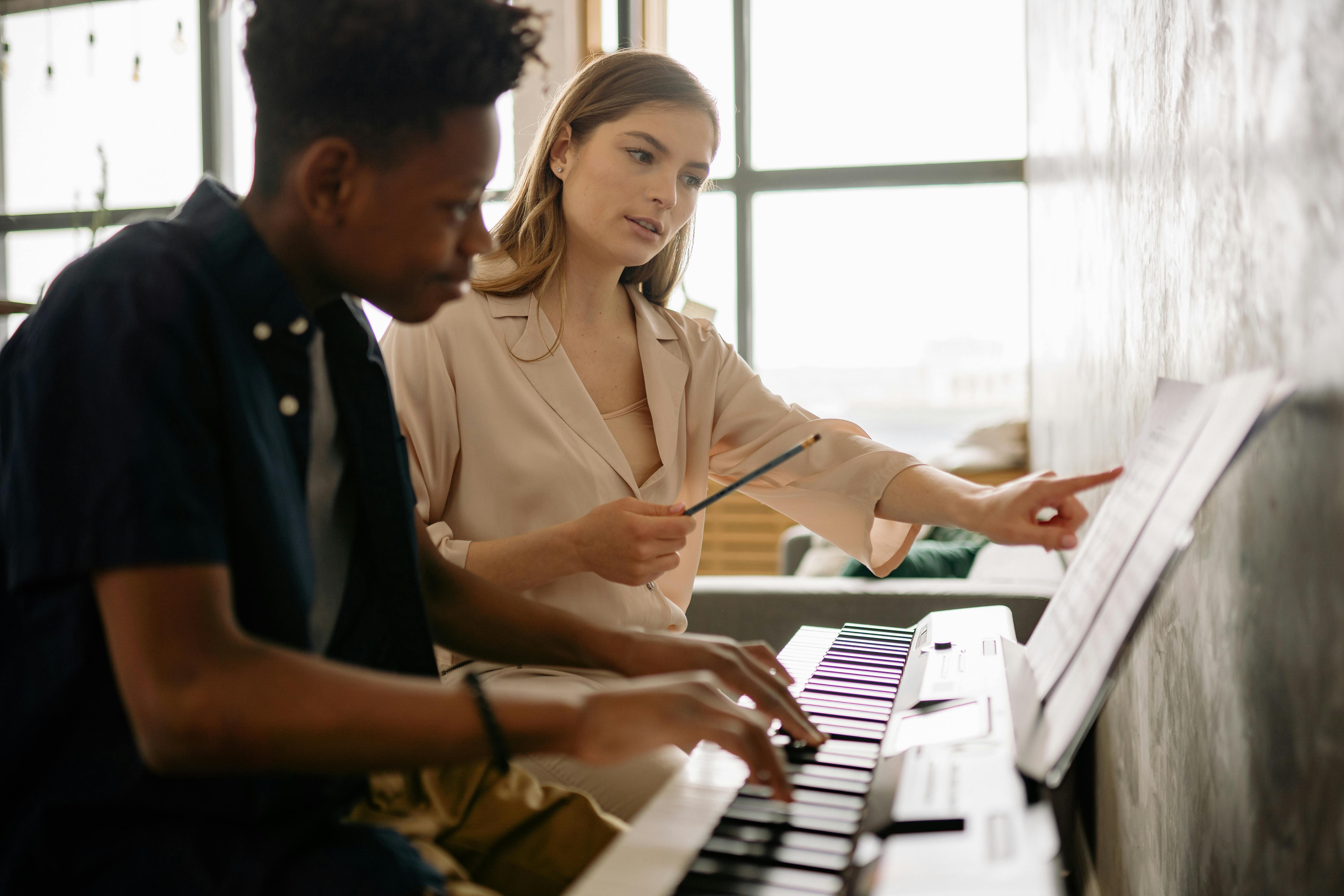
What Technology Provides:
- Consistent, "patient" technical instruction
- Instant feedback on mechanical skills
- Unlimited practice support
What Human Teachers Provide:
- Passionate warmth and encouragement
- Personal accountability and motivation
- Artistic interpretation and guidance
- The irreplaceable human connection that inspires musical growth
With future piano lesson tools like MuseFlow handling the technical groundwork, piano teachers become what they were always meant to be: musical mentors and artistic guides. Students arrive at lessons with solid technical foundations, ready to explore the heart and soul of music-making.
So the true future of piano education isn't AI supplanting the past. It's a beautiful harmony that is elevating both technology and humanity to create something better than either could achieve alone.


.svg)

.jpg)

